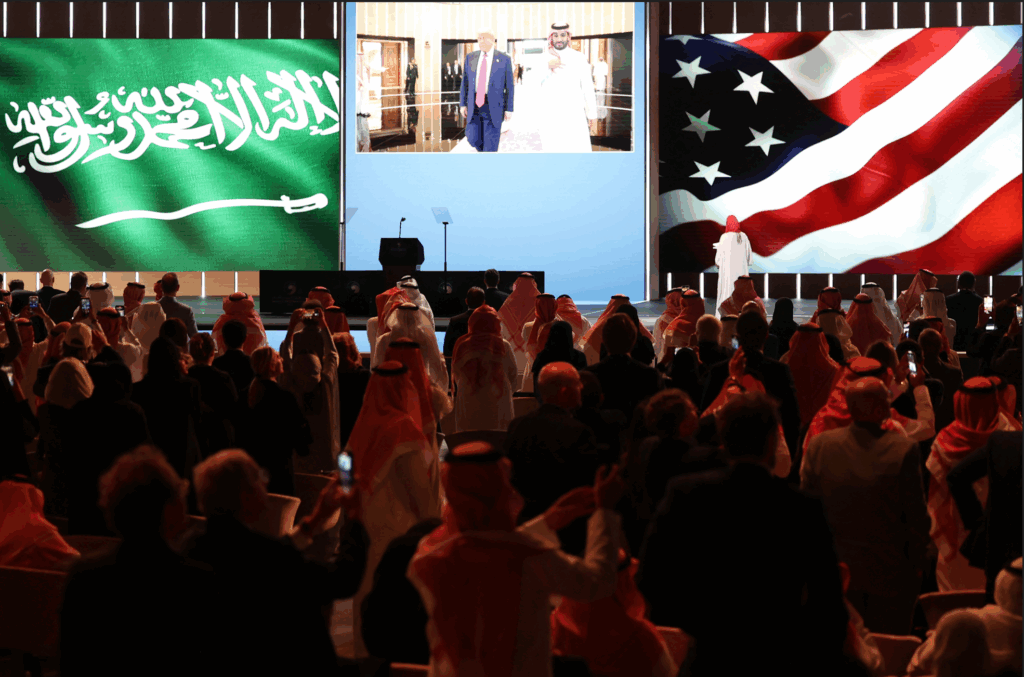
- 25 May 2021
Existing in an Existential Crisis: The Asian Response to Climate Change
 |
 |
This webinar is jointly organised by Doha Forum and Middle East Institute, NUS
About the Webinar
Asia is one of the most diverse regions in the world, with a variety of different environments within its vast lands. Several countries within Asian, including Indonesia, Japan, Vietnam, Singapore, and Qatar, are at risk of weather extremes and rising sea levels due to climate change. There is a growing realization that past efforts will not be enough to thwart future threats.
Join Doha Forum and the Middle East Institute at the National University of Singapore in their upcoming session on Asian perspectives on climate change, which seek to inform the discussion as a global issue, highlight variable risks, and illustrate different approaches to the problem.
Opening Remarks
- Ms Grace Fu, Minister for Sustainability and the Environment, Republic of Singapore
- HE Bader Al-Dafa, Special Envoy of the Minister of Foreign Affairs for Climate Change and Sustainability, Qatar
Panellists
- Mr Albert Chua, Permanent Secretary, Ministry of Sustainability and the Environment (MSE), Singapore
- Mr Rachmat Witoelar, Former Indonesian President’s Special Envoy for Climate Change
- HE Pham Quang Vinh, Former Ambassador of Vietnam to the US and Former Deputy Foreign Minister, Vietnam
- Mr Kiyoshi Ando, Senior Staff Writer and Editorial Writer for Nikkei
Moderator
- Mr Bilahari Kausikan, Chairman of the Middle East Institute, NUS
This public talk will be conducted online via Zoom on Tuesday, 25 May 2021, from 5.00pm to 6.30pm (SGT). All are welcome to participate. This event is free, however, registration is compulsory. Successful registrants will receive a confirmation email with the Zoom details closer to the date of the event.
To register, please click here.
Photo by Fahrul Azmi on Unsplash
Listen to the full event here:
Watch the full event here:
Read the Summary of Event Proceedings:
By Ilyas Salim
Research Assistant, Middle East Institute, National University of Singapore
Ms Grace Fu
Minister for Sustainability and the Environment, Singapore
Minister Grace Fu began by acknowledging the importance of tackling climate change and detailed Singapore’s approach to the problem. Climate change threatens access to essential resources such as water and food, in addition to having consequences on public health and diseases. Singapore, for instance, is projected to experience a one metre-rise in sea levels along with more frequent and intense rainfalls by the 22nd century.
Singapore has taken several steps to address climate change – it has established and funded organisations such as Centre for Climate Research to better understand the problem at hand and ensure that the country’s adaptation plans are based on robust research. Alongside this, Singapore has pursued a comprehensive suite of measures to reduce emissions across all sectors including switching from fuel oil to cleaner natural gas and being the first to introduce a carbon tax in Southeast Asia. It has also implemented adaptation measures to enhance climate resilience, including its Green Plan 2030 which articulated a roadmap towards sustainable development and net zero emissions.
Overall, while these solutions could be relevant for other cities facing similar challenges, climate change is ultimately a global issue that small countries cannot solve alone. Singapore has thus been actively participating in international climate negotiations. It is a strong supporter of the Paris Agreement and also collaborates with international parters such as the United Nations Environment Programme, as well as city networks such as the C40 Cities Climate Leadership Group to exchange experiences on climate change issues.
In this vein, Singapore welcomes opportunities to partner with Middle Eastern countries in collectively tackling climate change issues. Firstly, it can exchange expertise and share best practices on climate adaptation and mitigation strategies. Secondly, as both Singapore and the Middle Eastern states pursue decarbonisation plans, we can work together on clean energy solutions needed for the transition to a low-carbon future. Thirdly, it can cooperate with Middle Eastern countries on green growth and climate resilience programmes.
H. E. Rachmat Witoelar
Former President’s Special Envoy for Climate Change, Indonesia
As an archipelagic country with two thirds of its areas covered in water, Indonesia is particularly vulnerable to rising sea levels and hydro-metrological disasters which will threaten millions of residents living in coastal areas. While all levels of society are adversely affected by climate change-related incidents, there are clear differences between the poor and rich in terms of the capacity to adapt. For example, when flooding occurs more frequently, many displaced impoverished residents will have to gather in crowded places such as mosques and schools, further putting them at risk of exposure to Covid-19 or other waterborne diseases.
Jakarta, in particular, is one of the fastest-sinking cities in the world and has consequently topped a concerning list of cities that are most susceptible to the impact of climate change. Almost half of Jakarta sits below sea level and some parts of the city are sinking as much 25 centimetres per year, which is more than double the global rate for coastal megacities. One of the dominant causes of subsidence in Jakarta is excessive groundwater extraction which is driven by a combination of high population growth and the need for access to clean water. The state has initiated a number of plans to tackle the problem, including building of offshore seawalls and shifting the capital city from Jakarta.
Solving Jakarta’s climate change-related issues are difficult because they require addressing multiple interrelated problems so moving forward, micro solutions need to be integrated into the government’s macro solutions. Alongside current state efforts, for instance, there is a need to focus on halting sinking, by providing a dependable supply of water to stop people from using too much groundwater. Additionally, climate change mitigation and adaptation should be a key consideration in policy formulation and implementation. Lastly, climate justice needs to be highlighted and various factors such as class, gender and race should be considered to avoid leaving anyone behind.
H. E. Pham Quang Vinh
Former Ambassador to the US and Former Deputy Foreign Minister, Vietnam
While Vietnam as a whole has been exposed to the damaging impact of climate change, the main challenges it faces revolve around the Mekong Delta which has been seriously affected by both climate change and human behaviour. The delta, which covers an area one-eighth of Vietnam, is crucial as it produces one-fifth of the nation’s gross domestic product. It is home to 20 million people and is also responsible for 60 percent of rice production in Vietnam. The area now faces an existential challenge as the sea level is projected to rise by up to 65 to 100 centimetres by the end of the century.
The biggest and most immediate concern in the Mekong delta arising from climate change is water security. Increases in the lower level of the Mekong River will lead to seawater flooding into fields inland. The resulting floods, tidal inundation and salinity intrusion would thus threaten the rice basin and affect the region’s population. Fluctuations in the level and volume of water along with changes in the flow of the Mekong River have also led to other issues such as water shortages during dry seasons. Overall, these issues are caused by a combination of factors including unstable weather temperatures, seasonal raining and human behaviours related to the use of water in the Mekong.
To manage these problems, Vietnam has been an active participant in a number of important regional forums. These include the Mekong River Commission, the Greater Mekong Subregion Economic Co-operation Programme and the Lancang-Mekong Co-operation. It is thus important to develop a rule-based order in the region so that countries can benefit from the equitable and reasonable use of the region’s resources.
Mr Kiyoshi Ando
Senior Staff Writer and Editorial Writer for Nikkei, Japan
Like other Asian countries, Japan is affected by climate change in several ways including fluctuations in weather patterns. However, its most pressing problem is the powerful typhoons that have ravaged the country. In the past, intense storms that approach Japan are significantly weakened over the course of their passage. However, research shows that recent storms have been arriving without losing much of their power, resulting in strong precipitation, forceful winds and sweeping tidal waves that altogether, cause much destruction and economic damage especially in big cities.
To address its typhoon problem, Japan has sought to increase its capabilities in predicting extreme weather occurrences. Meteorological computers are renewed every three to four years and weather projections are quickly and reliably relayed through smartphones so that people can prepare to evacuate, if necessary. However, several issues remain. For instance, evacuation routes in Japan’s mountainous terrain can be hard to recognise for most people. A new project by Japan is currently looking into ways to control the strength of typhoons by changing the wind and precipitation of the perturbation in a typhoon’s initial stages, in order to weaken it.
Japan is also looking to mitigate climate change by reducing carbon emissions but this remains a big challenge due to its continued dependence on coal which supplies 80 percent of its electricity. While nuclear energy provides an alternative source of low-emission energy, most nuclear plants have been shut down since the Fukushima nuclear accident in 2011. Furthermore, Japan’s efforts to expand solar and wind energy are also hindered by its lack of land. These challenges remain even as Japan has pledged to achieve carbon neutrality by 2050.
Mr Albert Chua
Permanent Secretary of the Ministry of Sustainability and the Environment, Singapore
Climate change poses an existential threat to Singapore because if sea levels were to rise by one metre, many parts of the island will be underwater. Other specific issues related to climate change also include difficulties in accessing food and water, as well as rising heat in the urban environment. The battle against climate change is a long-term endeavour, starting from now until at least 2100. Singapore’s aim is to build up its three resiliences: climate resilience, resource resilience and economic resilience.
To bolster its climate resilience, Singapore has invested heavily in research about the impact of climate change in the tropics where weather patterns are more unpredictable compared to temperate climates. Over the next 50 to 100 years, Singapore expects to invest over $75 billion in coastal defences such as seawalls, pumping stations, land reclamation and nature-based solutions. Singapore is also developing a coastal inland flat model to enhance its resilience to floods caused by extreme weather and is researching into moderating urban heat by piloting crew paints and increasing greenery.
Resource resilience is especially key for Singapore. To this end, it has developed wastewater-recycling and desalination systems to provide two weather-resilient water sources. In terms of enhancing food resources, Singapore is investing in alternative proteins that can be produced in large quantities with little land and labour input. Singapore is also aiming to become more energy resilient by improving energy efficiency across its industrial building and transport sectors, above and beyond looking into clean energy solutions such as hydrogen and converting waste into resource.
Singapore plans to strengthen its economic resilience by transforming carbon-intensive sectors and building a green economy powered by green finance. Countries that can produce green and sustainable products will have a competitive advantage in an increasingly carbon and resource constrained world and Singapore aspires to be a hub for carbon trading and services as well as green finance.
Both the complications of mobilising public and private efforts to jointly tackle climate change and the dependence on a co-ordinated global response to climate change represent vital challenges for Singapore.
Highlights from the Q&A
During the webinar, panellists discussed the balance of policy and law in state efforts to address climate change-related issues. Ambassador Vinh said that policy arguably deserves a higher priority as no time should be wasted in implementing actions to mitigate the effect of climate change. Mr Ando, on the other hand, felt that policies and the law should go hand-in-hand and complement each other, especially since projects pertaining to environmental protection and climate change can be very complicated and controversial. He also said that Japan prefers guidelines to strong laws as the latter can make it difficult for organisations to align enforced objectives with their own goals, while the voluntary aspect of guidelines allows some leeway for them. Mr Chua agreed that a combination of both policy and legislative levers was crucial especially in working to change entrenched social behaviours to move towards adopting a greener way of life. For example, Singapore’s Resource Sustainability Act, while not well-known, is actually key in setting out the legislative framework for recycling for resource sustainability in the entire nation and also lays the groundwork for setting up an ‘extended producer responsibility’ system which ensures that producers of electronic, plastic and food waste are responsible for proper disposal and recycling.
About the Speakers

Minister Grace Fu graduated with a Bachelor of Accountancy (Honours) and obtained a Master of Business Administration from the National University of Singapore. She began her career in 1985 with the Overseas Union Bank, and later with the Haw Par Group, in the areas of corporate planning, financial controls and business development. She was later Chief Executive Officer of PSA South East Asia and Japan.
In 2006, Minister Fu was elected as Member of Parliament, and has since held office in the Ministry of National Development, Ministry of Education, Ministry of Foreign Affairs and Prime Minister’s Office. In 2015, she was appointed Minister for Culture, Community and Youth; and Leader of the House. Minister Fu assumed the position of Minister for Sustainability and the Environment in July 2020. She is a member of the People’s Association Board and the National Research Foundation and has chaired the National Integration Council and National Youth Council.
She was also involved in a number of committees, including as co-chair of the Singapore-Zhejiang Economic and Trade Council, the Sino-Singapore Tianjin Eco-City Joint Steering Council, the Ministerial Committee on Ageing and the Economic Strategies Committee.

HE Bader Omar Al Dafa is Qatar’s Special Envoy for Climate Change and Sustainability and the Executive Director of Global Dryland Alliance (GDA), an international organisation dedicated to food security in dryland countries. Prior to his leadership at GDA, Ambassador Al Dafa served as UN Under-Secretary General and Executive Secretary of the Economic and Social Commission for Western Asia (ESCWA). He served as Ambassador of Qatar to the US and was Permanent Observer to the Organisation of American States. (OAS). In this capacity, he played a special role in promoting access to education and the arts in the Arab-American community and other minority groups in the US.
Amb Al Dafa has enjoyed a long and distinguished career in foreign affairs and non-governmental services, which has included representing Qatar as Ambassador to Russia, France, Egypt and Spain. He has also served as the non-resident Ambassador to Switzerland, Greece, Finland, Latvia, Lithuania, Estonia and Mexico. Mr Al Dafa has also served as Director of the European and American Affairs Department at the Ministry of Foreign Affairs.
Highlights of Amb Al Dafa’s service with international NGOs include supervision of home building programmes for low-income families in Africa and participation in landmine-removal programmes in the Balkans. He has also actively participated in fundraising programmes with various children’s hospitals in Asia and North America and helped to raise funds for the empowerment of women in North Africa and Central Asia.
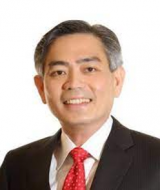
Mr Albert Chua is Permanent Secretary in the Ministry of Sustainability and the Environment (MSE).
Mr Chua joined the Singapore Administrative Service and was posted to the Ministry of Foreign Affairs (MFA) in 1992 and served in various appointments.
Mr Chua attained a Master in Public Administration from the Kennedy School of Government, Harvard University in 1999.
Mr Chua was Second Permanent Secretary (MFA) from August 2014 to September 2017 and appointed Permanent Secretary (MSE) on 1 October 2017.
Mr Chua is currently a Board Member of the Institute of South Asian Studies.
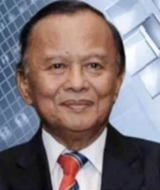
Rachmat Witoelar is the former Indonesian President’s Special Envoy for Climate Change (2010-2019). He was the Indonesian Minister for Environment (2004–2009) and the Executive Chair of the Indonesian National Council on Climate Change (2010–2014). Mr Witoelar has held the presidency position in the United Nations Environment Programme Governing Council (2005–2007) and Conference of Parties (COP) 13 of the United Nations Framework Convention on Climate Change (UNFCCC) from 2007to 2008.
He was also Indonesia’s Ambassador to the Russian Federation, Kazakhstan, Turkmenistan and Mongolia (1993–1997) and had a long tenure as a member of the Indonesian parliament (1971–1993). Graduated as an architect from Bandung Institute of Technology (ITB) in 1971, he is currently an Adjunct Professor in Environmental Management from Griffith University, Australia, Advisor for the Institute for Sustainable Earth and Resources (I-SER), Universitas Indonesia and Patron of the Collaborative Australia Indonesia Programme on Sustainable Development and Climate Change (CAIPSDCC).
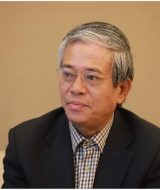
Ambassador Pham Quang Vinh worked in Vietnam’s foreign service for 38 years (1980 to 2018), focusing on multilateral diplomacy and relations with Southeast Asia and the US.
Most recently, he served as Vietnam’s 5th ambassador to the US (2014-2018) – a time where relations between the two countries had been strengthened extensively.
He was promoted to Deputy Foreign Minister in 2011 and prior to that, was the Assistant Foreign Minister. During this time, he also served as Vietnam’s ASEAN SOM Leader from 2007 to 2014.
He was accorded Vietnam’s highest diplomatic rank as Senior Ambassador and retired from the foreign service in December 2018.
After retirement, he served as Senior Advisor at the Center for Strategic Studies and Development (CSSD) in Vietnam.
Ambassador Vinh graduated from the University of Foreign Affairs, Vietnam in 1980 and earned a post-graduate degree at the Canberra College of Advanced Education, Australia in 1985.
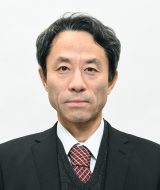
Kiyoshi Ando is currently a Senior Staff Writer and Editorial Writer for Nikkei, a major economic daily newspaper in Japan which publishes “Nihon Keizai Shimbun” and has acquired the Financial Times.
His areas of interest are environmental issues including climate change, natural disasters and de-carbonisation technologies, innovations in life sciences and biomedical technologies, as well as development around Fukushima Daiichi nuclear plant decommissioning.
He joined Nikkei in 1987, covering science & technology and business news before becoming a Washington DC correspondent (1998-2002) and was also Paris Bureau Chief from 2003 to 2007.
He earned his Master’s degree in environmental sciences after having majored in physics at the Tsukuba University in Japan. He is an accredited and registered meteorologist of Japan.

[Moderator] Mr Bilahari Kausikan is the chairman of the Middle East Institute, an autonomous institute of the National University of Singapore. Mr Kausikan was permanent secretary of Singapore’s Ministry of Foreign Affairs from 2010 to 2013, having served as second permanent secretary since 2001. He was subsequently ambassador-at-large until May 2018. His earlier appointments at the ministry include deputy secretary for South-east Asia, permanent representative to the United Nations in New York, and ambassador to the Russian Federation.



